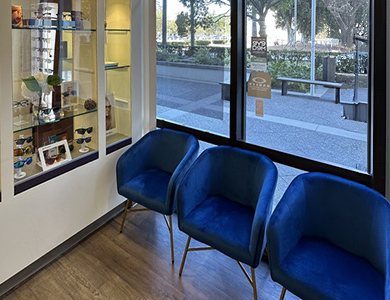
Every patient is different and so are their eyes. This means that there need to be different types of contact lenses to suit each individual. Some patients have corneal abnormalities which mean that conventional lenses won’t sit comfortably on the surface of their eyes, while others suffer from eye conditions that mean normal contact lenses won’t be comfortable or could irritate their eyes.
As you may have guessed from the name, specialty contact lenses are unconventional contacts that are designed for patients that regular contacts might not be suitable. Here are some of the main types of speciality contact lenses and who they are recommended for.
Who might be a good patient for specialty contact lenses?
Some of the patients that might benefit from specialty contact lenses include those who:
have been diagnosed with dry eye syndrome
have corneal scarring
have been diagnosed with keratoconus, a condition characterized by the bulging of the cornea
suffer from strabismus, a condition where the patient has an eye that turns in or out relative to the other
have suffered an injury to the eye
suffer from a peripheral corneal thinning disorder
are intolerant to other types of lenses
Your eye doctor or contact lens provider will be able to tell you if you need specialty contact lenses and if so, which lenses would be best based on your individual requirements.

Rigid Gas-Permeable Lenses
Also known as RGP lenses, these are made from a special material that allows oxygen to pass through them and reach the surface of the eyes. This helps to keep the eyes hydrated and comfortable, making these lenses easier to wear, especially for patients who suffer from dry eyes. Dry eyes aren’t just a symptom, but a very real condition, characterized by dry, stiff, and uncomfortable eyes, blurred vision, and eye fatigue. RGP lenses are more rigid than soft lenses, and this helps to keep them stable and secure on the eyes so that patients can enjoy sharper vision. They also help the cornea to maintain its shape, which helps to minimize the effects of some corneal abnormalities.
Scleral Contact Lenses
Scleral lenses are very large diameter gas-permeable lenses that hold their shape on the eye and create a chamber of tears that stay adhered to the ocular surface. Because of their size, they are typically extremely comfortable and provide better vision correction than most surgeries, standard contact lenses, and glasses.
Scleral lenses may be an option for patients with more severe dry eye conditions such as:
ocular graft-versus host disease
Sjogren’s syndrome
Stevens-Johnson syndrome
Meibomian gland dysfunction
Evaporative dry eye
Neurotrophic corneas
Exposure keratitis (with eyelid conditions, such as Bell’s Palsy)
Lacrimal gland problems
Ocular cicatricial pemphigoid
Scleral lenses may also be the best strategy for patients who need optimal optical correction. Irregular astigmatism is created in conditions such as:
Keratoconus
Post-corneal crosslinking
Pellucid marginal degeneration
Post- penetrating keratoplasty (corneal transplant surgery)
Post-radial keratectomy (RK surgery)
Post-LASIK ectasia
Post-trauma (such as open globe)
Salzmann nodular degeneration
Terrian’s marginal degeneration
Our contact lens appointments are scheduled to ensure that we have adequate time to perform a thorough ocular health assessment and fitting for your particular needs. Because of the custom nature of specialty contact lens fits often times multiple visits are needed. As we believe that it is important to provide the best care at an affordable cost all follow-up visits are included in our global fitting fee.
We truly understand the emotional and physical discomfort that living with visual impairments can bring. Our team is compassionate and caring and have many years of experience working with patients suffering complex vision issues. Nothing pleases us more than the feeling we get watching a happy patient leave with great vision and a new view of the world.




